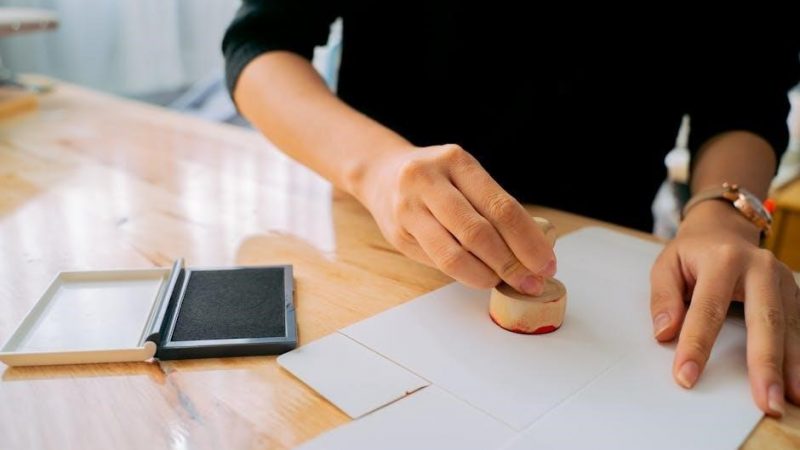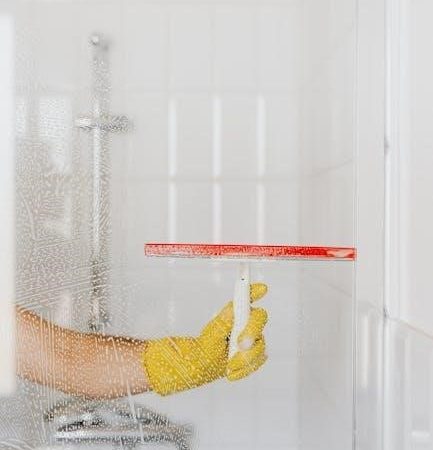removable denture manual
This manual provides comprehensive instructions for the care and maintenance of your removable dentures. Following these guidelines will ensure the longevity of your dentures, maintain good oral health, and improve your overall quality of life by ensuring they stay clean and comfortable.
Removable dentures are custom-designed appliances crafted to replace missing teeth, effectively restoring oral function and enhancing your smile’s aesthetics. They offer a solution for individuals who have experienced tooth loss due to various reasons, including decay, injury, or disease. These dentures are designed to be taken out and reinserted, allowing for easy cleaning and maintenance.
There are two primary types of removable dentures: full dentures, which replace all the teeth in either the upper or lower jaw, and partial dentures, which are used when some natural teeth remain. Partial dentures attach to the existing teeth with clasps or other attachments, providing stability and support. Both types of dentures are meticulously crafted to resemble natural teeth and gums, ensuring a comfortable fit and a natural-looking appearance.
This manual serves as a guide to help you understand the proper care and maintenance techniques necessary to keep your dentures clean, comfortable, and functioning optimally. Following these instructions will contribute to your overall oral health and well-being, allowing you to confidently enjoy daily activities such as eating and speaking.
Daily Cleaning and Maintenance
Maintaining your removable dentures requires diligent daily cleaning to remove food particles, plaque, and bacteria, preventing stains and promoting optimal oral health. Just like natural teeth, dentures are susceptible to the accumulation of debris, which can lead to unpleasant odors, gum irritation, and potential infections. Establishing a consistent cleaning routine is crucial for the longevity and hygiene of your dentures.
Begin by rinsing your dentures thoroughly under lukewarm running water after each meal to dislodge any loose food particles. Next, use a soft-bristled denture brush and a non-abrasive denture cleaner to gently scrub all surfaces of the dentures, paying particular attention to the areas that come into contact with your gums and remaining teeth. Avoid using regular toothpaste, as it can be too abrasive and may scratch the denture material.
In addition to brushing, soaking your dentures in a denture cleaning solution daily helps to remove stubborn stains and kill bacteria. Follow the manufacturer’s instructions for the soaking time and rinse the dentures thoroughly with water before reinserting them into your mouth.
Proper Handling Techniques
Removable dentures, while durable, are susceptible to damage if not handled with care. Dropping your dentures, even from a short distance, can lead to cracks, chips, or even breakage. Therefore, it is crucial to adopt proper handling techniques when inserting, removing, and cleaning your dentures to prolong their lifespan and avoid costly repairs.
When handling your dentures, always do so over a soft surface, such as a folded towel or a sink filled with water. This will cushion the impact if you accidentally drop them. When inserting your dentures, use your fingers to gently guide them into place, ensuring that they are properly aligned with your gums and any remaining teeth. Avoid biting down or forcing the dentures into position, as this can damage both the dentures and your oral tissues.
Similarly, when removing your dentures, use your fingers to gently loosen them from your gums before carefully lifting them out of your mouth. Never use excessive force or pull on the dentures, as this can cause discomfort and potentially damage the clasps or attachments. When not in use, always store your dentures in a safe place where they will not be accidentally knocked over or stepped on.
Recommended Cleaning Agents
Maintaining the cleanliness of your removable dentures is essential for preventing odor, stains, and the buildup of harmful bacteria that can lead to oral health problems. Choosing the right cleaning agents is crucial for effectively removing debris and keeping your dentures fresh and hygienic without causing damage to the materials.
Several types of cleaning agents are specifically designed for removable dentures, each with its own advantages. Denture cleansers are available in various forms, including tablets, creams, pastes, gels, and solutions. Effervescent denture tablets are a popular option, as they dissolve in water to create a cleaning solution that can effectively remove stains and bacteria. Denture pastes and creams can be applied directly to the dentures with a soft brush to scrub away debris.
In addition to commercial denture cleansers, mild soap and water can also be used to clean your dentures. Avoid using regular toothpaste, as it can be abrasive and may scratch the surface of the dentures. Always rinse your dentures thoroughly after cleaning to remove any residue from the cleaning agent.
Nighttime Storage Instructions
Proper storage of your removable dentures overnight is crucial for maintaining their shape, preventing bacterial growth, and ensuring your oral health. Unlike natural teeth, dentures are made of materials that can warp or dry out if not stored correctly. Therefore, following specific nighttime storage instructions is essential for preserving the integrity and longevity of your dentures.
The most common and recommended method for storing dentures overnight is to immerse them in a denture soaking solution or plain water. This prevents the dentures from drying out and maintains their proper fit. Using a denture cleanser solution can also help to kill bacteria and prevent the buildup of plaque and stains.
Before placing your dentures in the soaking solution, it is important to thoroughly clean them to remove any food particles or debris. Use a soft-bristled denture brush and a mild denture cleaner to gently scrub all surfaces of the dentures. Rinse them thoroughly with water before placing them in the storage container.
Avoid using hot water, as it can warp the dentures. Make sure the water is at room temperature. Never store dentures dry, as this can cause them to become brittle and crack. By following these simple nighttime storage instructions, you can ensure that your dentures remain in good condition and provide you with years of comfortable wear.
Adjusting to New Dentures
Receiving new dentures is a significant step towards restoring your smile and oral function. However, it’s important to understand that adjusting to new dentures takes time and patience. It is a process, and you may experience some initial discomfort and challenges as you adapt to wearing them.
Initially, your dentures may feel bulky or loose in your mouth. This is normal as your mouth adjusts to the new appliance. You might experience increased saliva flow, difficulty speaking clearly, or some soreness in your gums. These issues are typically temporary and will subside as your mouth becomes accustomed to the dentures.
To help with the adjustment period, start by wearing your dentures for short periods each day and gradually increase the wearing time. Practice speaking aloud to improve your pronunciation. Eating soft foods initially will make chewing easier. If you experience any sore spots, contact your dentist for adjustments. They can identify areas of pressure and make necessary corrections to improve the fit.
Remember that patience is key. It may take several weeks or even months to fully adjust to your new dentures. With consistent wear, proper care, and regular checkups with your dentist, you will regain confidence in your smile and enjoy the benefits of your new dentures.
Dietary Considerations
Adapting to dentures involves mindful adjustments to your diet to ensure comfortable eating and proper denture function. Initially, focus on consuming soft foods that require minimal chewing. Options like yogurt, mashed potatoes, soups, scrambled eggs, and cooked cereals are excellent choices as you get used to your new dentures.
As you become more comfortable, gradually introduce firmer foods into your diet. Cut your food into smaller pieces and chew slowly and evenly using both sides of your mouth to distribute the pressure. Avoid excessively hard, sticky, or chewy foods that can dislodge or damage your dentures. These include nuts, hard candies, caramels, and tough meats.
Be cautious with hot liquids and foods, as dentures can insulate your mouth and make it difficult to gauge temperature accurately. Test the temperature of food before consuming it to prevent burns. Additionally, be mindful of foods that can stain your dentures, such as coffee, tea, red wine, and berries. Rinsing your mouth and dentures after consuming these items can help minimize staining.
Maintaining a balanced diet rich in vitamins and minerals is essential for overall oral health and to support the tissues in your mouth that support your dentures. If you have any concerns or questions about specific foods or dietary restrictions, consult with your dentist or a registered dietitian for personalized recommendations.
Regular Dental Checkups
Consistent dental checkups are paramount for maintaining the health and proper fit of your removable dentures, as well as the overall well-being of your oral cavity. These appointments allow your dentist to assess the condition of your dentures, ensuring they are free from cracks, chips, or excessive wear. Early detection of any issues can prevent more significant problems and extend the lifespan of your dentures.
During checkups, your dentist will also examine the tissues in your mouth, including your gums and jawbone. Over time, the shape of your mouth can change, leading to ill-fitting dentures that cause discomfort, irritation, or even sores. Your dentist can identify these changes and make necessary adjustments to your dentures or recommend relining or rebasing to restore a proper fit.
Furthermore, regular dental visits enable your dentist to screen for oral cancer and other potential health concerns. Early detection is crucial for successful treatment. Your dentist can also provide personalized guidance on denture care, address any questions or concerns you may have, and offer professional cleaning services to remove stubborn stains and plaque buildup.
It is generally recommended to schedule dental checkups every six months, or as advised by your dentist. These visits are an investment in your oral health and the long-term success of your removable dentures.





